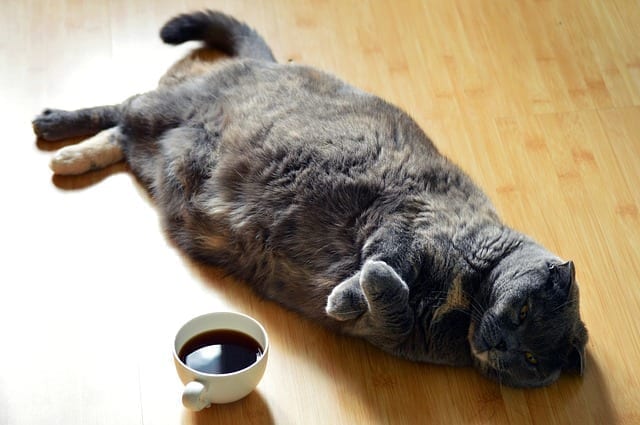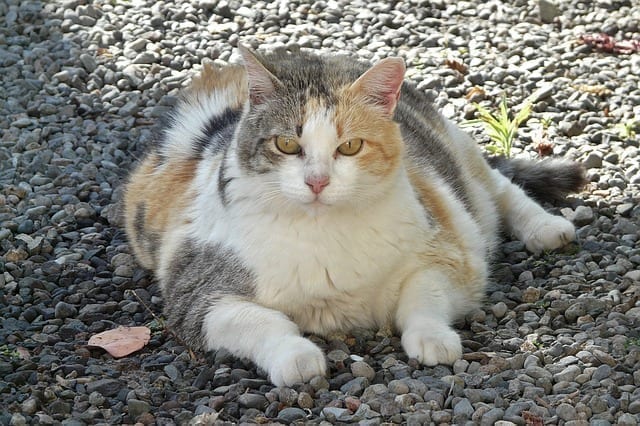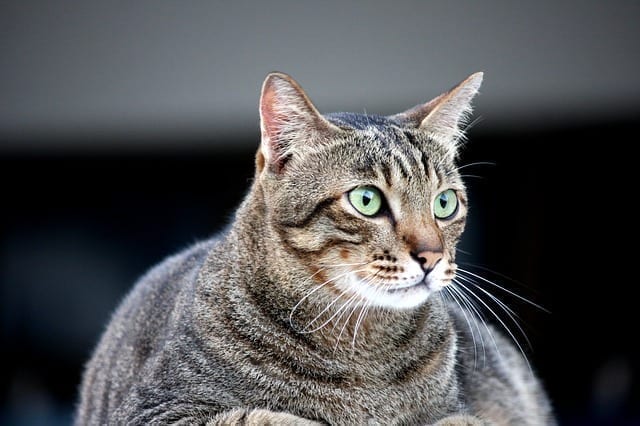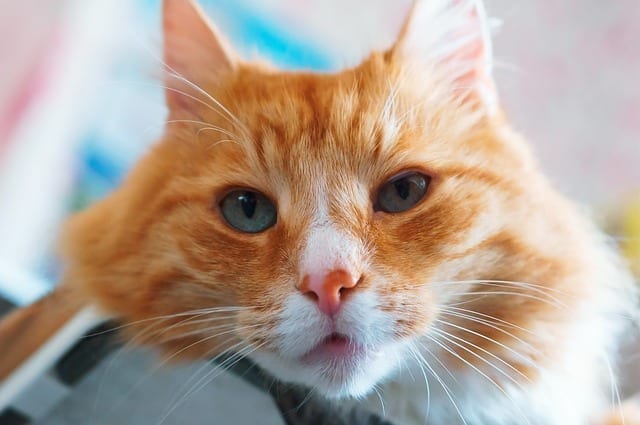Fat cats get a lot of attention for being the glue that keeps the internet together, and cartoons and social media celebrate their funny physiques. They’re cute and look like the perfect pillows, but there’s more to them than their rolls of furry fat.
The Association for Pet Obesity Prevention reports over half of the country’s pet cats are obese. If you’re the proud owner of one of those 55 million tubby kitties, there are a few things you should know.

#1 – Your cat is at a higher risk of developing diabetes
Cats get diabetes just like humans, and if left untreated, it can be lethal. Your cat won’t be able to produce the insulin she needs to balance her blood sugar, and extreme dehydration, depression, decreased motor function, and lethargy are all symptoms.
#2 – They will most likely have arthritis in old age
It takes a lot of effort to lift a big body on legs that weren’t meant to support all that weight. Your fat cat’s joints will suffer under those extra pounds, and most overweight felines that live to old age have arthritis. It’s a chronic condition with no cure.

#3 – Their weight could be causing those skin issues
Obesity makes cats twice as likely to develop irritating skin issues. Their size makes it harder for them to groom themselves, and their skin and fur suffers as a result. Feline acne and dry, flaky skin plague chunky cats and can be so persistent, the conditions seem permanent.
#4 – Carbs matter to cats, too
If you’ve ever been on a diet, you know carbs can be the enemy. Cats follow the same rule. Their bodies are designed for diets rich in protein and low in carbs, but most dry cat food doesn’t match those needs. If you don’t feed your cat a raw diet, they’re probably getting more carbs than necessary. This isn’t always an issue, but it makes it harder for chronically obese felines to lose weight.

#5 – Their obesity is a direct result of lack of exercise
Most pet cats enjoy the luxuries of living indoors. They don’t have to hunt for their food, and they can spend all day snoozing. It sounds nice, but a sedentary lifestyle is the main reason why so many pet cats are overweight. Investing in toys that force your cat to move and spending time encouraging activity will help keep their weight under control.
#6 – They don’t like water, but they need it
Health experts are always telling people they need to drink more water, and you should be telling your cat the same thing. Water helps burn calories and can also suppress your cat’s appetite. Make sure their water dish is always full and clean.

#7 – Your cat likes wet food better than dry, and it’s a healthy indulgence
Dry cat food helps prevent plaque from building up on your cat’s teeth, but it only has a 5-15% water content. Wet food, on the other hand, is about 85% water. Feeding canned food will help your cat stay hydrated without forcing them to drink. The fact that most wet food also has a high percentage of animal protein is an added bonus.
# 8 – Your cat looks to you to keep her healthy
From the moment you brought your adorable new kitten or rescue cat home, you took on the responsibility of doing what was best for her. It’s your job to do everything you can to keep her healthy, and monitoring her weight is a part of that. If your tubby tabby is chronically obese, talk to your vet about putting her on a diet. Incorporate more exercise into her life, and make gradual changes to ensure she stays happy and healthy.

